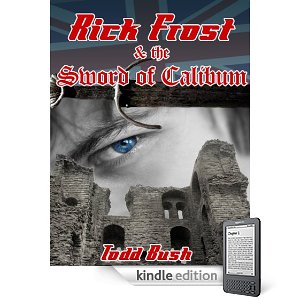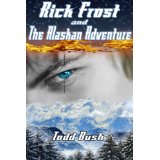For many writers, traditionally published or indie, writing the book is the easy part. It might take years, decades even, to put every word on paper, but writing those finals words is only the beginning.
Then the road to publication begins. For authors trying to publish through a typical publishing house, finding representation is the crucial starting point, but for indie authors there are more decisions that must be made. Will he publish strictly to e-reader, and if so, which devices will he tailor the format for and establish a sales site with? If the author chooses a combination of self-published hard copies to go along with the digital download, which self-publishing imprint will he select, one that charges up front but awards almost all of the royalties to the writer, or one that does not charge an initial fee but keeps a slightly larger percentage of every sale?

Once the indie author selects whom he will publish with, it’s still not an overnight process. There are editorial changes that must be made, design features to envision and formulate, and proofs to finally approve, all before a book ever appears on the market and ultimately, on the shelf.
When that glorious day finally happens—book birthday, as it’s affectionately called among authors—the work of selling the book starts. For many indie authors, this is the time when they discover that they no longer have time for writing, the beloved pastime that started all of this in the first place, as the real career of publicizing their new novels takes over.
Indie authors must take on the responsibility of arranging for book signings, writing guest blogs for other authors’ websites, submitting book synopses for publications or sites that review books. In short, all of the things that the traditional author’s agent and publisher assist with, although not to be misleading, much of the work of marketing still falls to the traditional author.
For Todd Bush, author of the middle grade/young adult adventure series Rick Frost, he recently celebrated his debut novel’s birthday with a glass of scotch, a cigar, and some play time with his family by the pool. This idyllic time to celebrate the long road to publication happened because Bush knew that by the next morning, he would be back at work on the marketing of his first novel, editing and revision for the second novel in the series, and some time spent with the word count of his third novel.
But what’s the hurry? Why wouldn’t an author focus more effort and energy on getting his first book into the hands of readers instead of forging ahead with a sequel before a large fan base has even had the chance to discover the first book?
“Selling e-books is about giving yourself the opportunity to be discovered by readers, and the more books you have out the better your chances of having people find you. Once readers find you, then they find your other books. Shelf space is infinite with e-books, so if you have a few good books, get them out there and let someone new discover you,” Bush explains.
Mercy Pilkington is a Senior Editor for Good e-Reader. She is also the CEO and founder of a hybrid publishing and consulting company.

